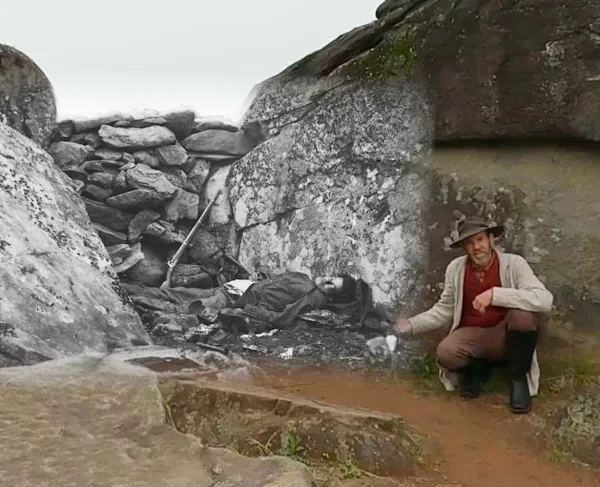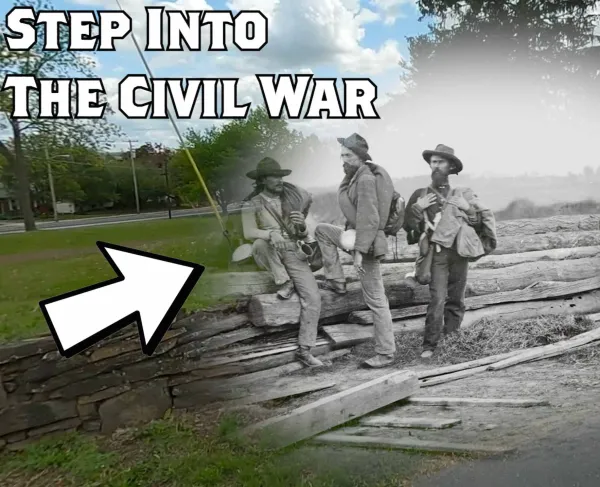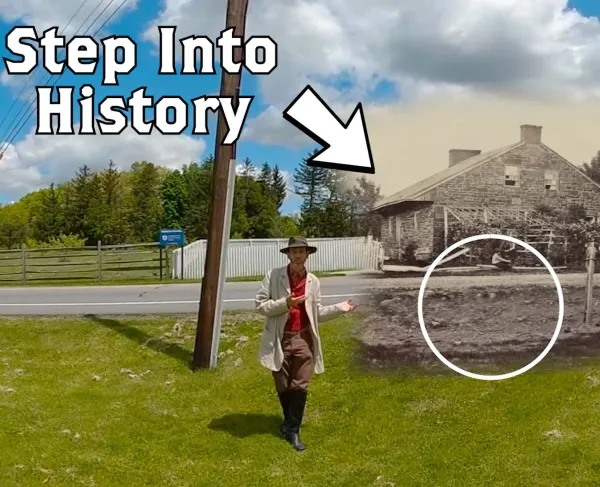How Lincoln Changed the World in Two Minutes
This video was produced in partnership with Prager University and made possible by a gift from a generous donor of the Civil War Trust.
Read the Transcript:
President Abraham Lincoln’s Gettysburg address is one of the most famous speeches ever given. It is stunning in its brevity: ten sentences—272 words—and delivered in just over two minutes…few have said more with less.
Lincoln delivered the address on November 19, 1863. He was in Gettysburg to dedicate a national military cemetery to the Union soldiers who fell at the Battle of Gettysburg four months earlier. The North’s victory here was one of the pivotal battles of the American Civil War.
Lincoln begins this way: “Four score and seven years ago our fathers brought forth on this continent a new nation conceived in liberty and dedicated to the proposition that all men are created equal.”
Lincoln goes back in time—not to the signing of the Constitution, but to the Declaration of Independence. The Constitution, in forming our government, was the product of many compromises…most notably, slavery. In contrast, the Declaration of Independence declares our enduring national values. In one sentence, Lincoln summarizes the American project: liberty for all and equality of all.
“Now we are engaged in a great civil war testing whether that nation, or any nation so conceived and so dedicated, can long endure.”
Lincoln’s assertion is two-fold. First, the United States is unique. No nation was ever founded on a commitment to liberty and equality. And the Civil War was a trial to see if a nation based on such lofty ideals could survive.
“We are met on a great battlefield of that war.” Gettysburg, Pennsylvania, was the site of the bloodiest battle of America’s bloodiest war. In three days of fighting, 51,000 Americans on both sides—Union and Confederate—were killed, wounded, captured, or missing.
“We have come to dedicate a portion of that field, as a final resting place for those who here gave their lives that nation might live. It is altogether fitting and proper that we should do this. But, in a larger sense, we cannot dedicate—we cannot consecrate—we cannot hallow—this ground. The brave men, living and dead, who struggled here, have consecrated it, far above our poor power to add or detract.”
Lincoln is not in Gettysburg to celebrate the Union victory. Rather, he explains that those who fought were the loyal guardians of the American Experiment. With their blood, they watered the tree of liberty. As Lincoln himself knew, how could his words ever compare to that sacrifice?
He even speculates that, “The world will little note, nor long remember what we say here, but it can never forget what they did here.”
Ironically, the world remembers what our sixteenth president said, but do we remember the actions of those who fought at Gettysburg?
Lincoln answers that question with a challenge: “It is for us the living, rather, to be dedicated here to the unfinished work which they who fought here have thus far so nobly advanced. It is rather for us to be here dedicated to the great task remaining before us—that from these honored dead, we take increased devotion to that cause for which they gave the last full measure of devotion…”
Those who fought and died shouldered our nation’s enduring values through the refining fire of Gettysburg and the Civil War. Lincoln points to them, and challenges the living. Are we prepared to heed their example to do what is necessary to advance the founding ideals of the Declaration of Independence?
Remember, the Gettysburg Address is a wartime speech. Lincoln is steeling his contemporaries for the many battles, burdens, and responsibilities still ahead. But he’s also looking to the future—he is looking to us.
Lincoln concludes: “…that we here highly resolve that these dead shall not have died in vain—that this nation, under God, shall have a new birth of freedom—and that government of the people, by the people, for the people, shall not perish from the earth.”
The Union won the Civil War. Slavery ended. And with it, the values of liberty and equality were given a “new birth.” However, the struggle for liberty and equality continued…and persists today. Lincoln foresaw this.
To remain a nation “dedicated to the proposition that all men”—all people—“are created equal” and that “government of, by, and for the people shall not perish from the earth”—these are the “unfinished work” and the “great task remaining” of every generation.
Ours is no exception. Are we up to President Lincoln’s challenge?
I’m Professor Doug Douds of the Army War College for Prager University.
Related Battles
23,049
28,063





